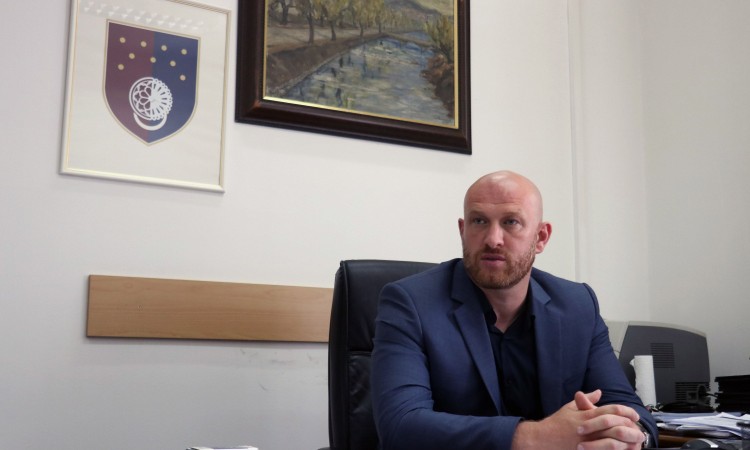
The international administrator in Bosnia supported the initiative by which Sarajevo Canton would provide temporary funding to seven national cultural institutions to which state-level government has turned a blind eye and left them to fend for themselves.
“As it is well known, the seven cultural institutions (National Museum of BiH, Historical Museum of BiH Art Gallery of BiH, National and University Library of BiH, Museum of Literature and Theatre Performing Arts of BiH, National Film Archive of BiH and Library for the Blind and Visually Impaired Persons of BiH) have been experiencing numerous difficulties in their work, primarily due to a lack of appropriate and stable funding. Office of the High Representative (OHR) welcomes the willingness of the Sarajevo Canton and its Government to offer temporary solutions and to provide — on a temporary basis — financing and governance of the above-mentioned seven cultural institutions until responsible suite-level institutions take a decision necessary for regulating their future legal status and all related issues,” said the OHR in charge of overseeing the civilian implementation of the Dayton Peace Agreement which ended the war in Bosnia.
Bosnian cultural institutions have been left to fend for themselves ever since the Dayton Peace Agreement was signed and state institutions re-established. The reason for this is because the Bosnian Serb entity called Republika Srpska (RS) refuses to recognize these institutions as their own, claiming that they have their own national institutions.
The word national in this context is used to a people, namely the Serb people as constituent people in the country, and not all people living in Bosnia.
As ministers and MP's from the RS do not recognize them as their own institutions, they also refuse to vote to include them into a state budget since they are not included in it by the Constitution.
Ever since the Dayton Peace Agreement was signed, they were funded from different sources, including individual state ministries, the Federation of Bosnia and Herzegovina entity which is shared by Bosniaks and Croats as the other two constituent peoples, and from donations from cantons and individuals.
In July this year, Sarajevo Canton's Minister of Culture Kenan Alikadic announced that the canton will provide temporary funding for the umbrella institutions until their legal status is resolved two decades after the end of the war.
Alikadic then recalled that in a letter sent to the Council of Ministers (as the Bosnian government is officially called) that cantonal authorities asked for the consent to form a temporary supervisory and management board for all seven institutions, which would receive no fees so that they would control their work.
He stressed that the Sarajevo Canton currently allocates around 773,000 Bosnian marks (some €400,000) annually for the financing of these institutions and that more than two million Bosnian marks (approx €1 million) will be needed for the complete financing.
However, he warned that the cantonal government still does not have the possibility of permanently resolving the problem of financing of these institutions, because the founding rights are at the state level.
On Wednesday Alikadic said the Ministry is ready to appoint management structures immediately after the decision of the Council of Ministers.
“We have already provided budget funds to start financing all seven institutions and thus enable regular payment of salaries to cultural workers, but also launch certain projects. During this week I will contact all institutions and ask them to comment on this matter, as soon as possible. I hope that our colleagues from other cantons and entities will meet and help us to finally end this process," Minister Alikadic concluded.
Kakvo je tvoje mišljenje o ovome?
Učestvuj u diskusiji ili pročitaj komentare





 Srbija
Srbija
 Hrvatska
Hrvatska
 Slovenija
Slovenija







